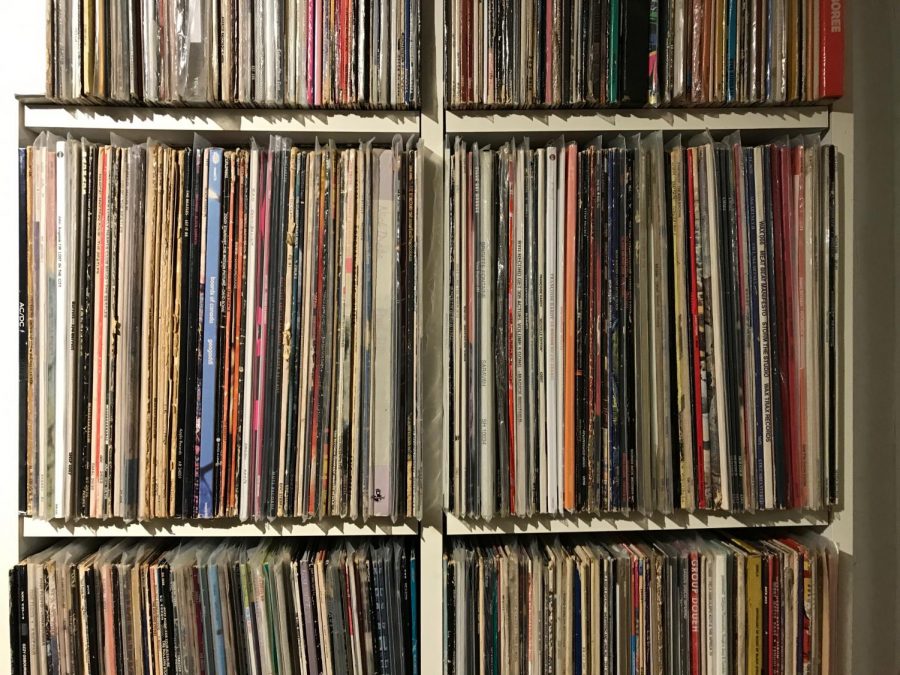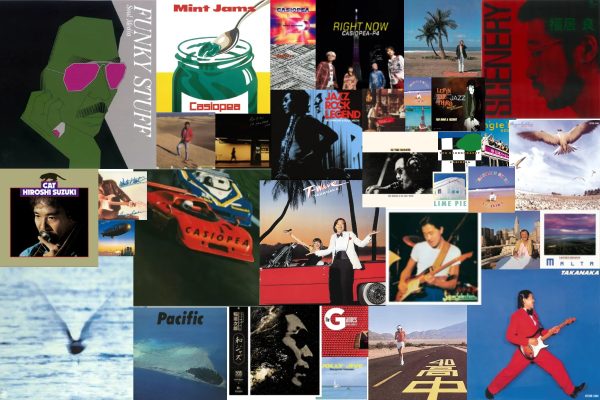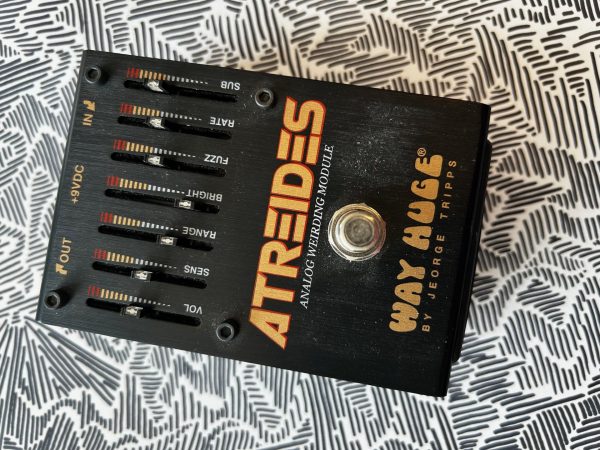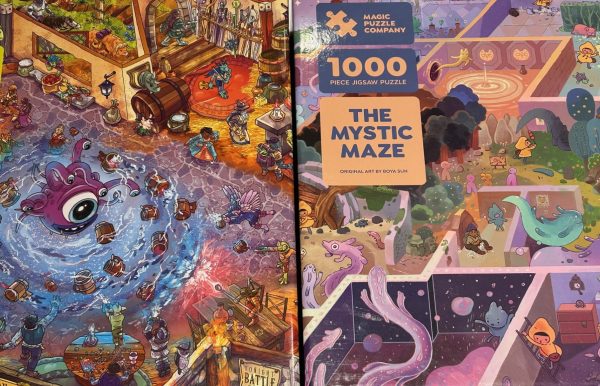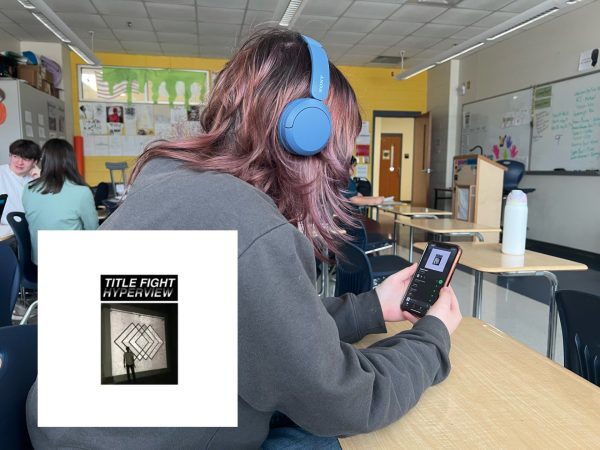The Value of Vinyl: Resurgence of Vintage Music Medium Spins Out of Control
Fred Avett’s record collection.
According to Rolling Stone, for the first time in 33 years, vinyl records are outselling CDs as the preferred physical medium for music. Over the last few years, CD sales have been declining at three times the rate as vinyl. With a 12% increase in the first half of 2019, vinyl earned $224 million, which is coming increasingly closer to the $247 million spent on CDs, but the difference is that CDs have seen no increase in sales at all.
So why did in 2019, of all years, vinyl suddenly start becoming massively popular again? Jimmy Demer, a CCHS English teacher, who worked in a record store in the 1990’s, shares his thoughts.
“A lot of people who buy vinyl are nostalgic for the days before CDs. CDs have no romance. They’re a product whereas a record feels more like a piece of art. So I would imagine that many people that used to buy CDs now just download or do what you guys do, and people that had relationships with records when they were kids are probably continuing that nostalgic relationship now, although records and vinyl records are more expensive than CDs today,” said Demer.
Chamblee students, while not being alive to see the hay-day of records, have joined the rest of the world in jumping on the vinyl bandwagon.
“I collect records because one time when I was like 8 or 9 I found my dad’s old record collection and turntable in my basement and I thought it was so cool because I had always heard my dad play the songs from the records in the car but it was the first time I found out the names of the artists and songs I had never heard before,” said Lizzie Smith-Purcell.
Sophomore Sirianna Blanck feels differently, she prefers records because she finds them more convenient and satisfying than streaming.
“I collect records because it allows me to choose what music I want to see and select rather than just scroll through my phone. I am very picky what records I get versus I add literally everything to my phone,” said Blanck.
Working in a record store, Demer experienced first hand the evolution that occurred with the introduction of the CD, specifically huge changes in the stock of most music stores.
“In the mid ‘80s, there was a shift and people started buying CDs, largely to the exclusion of records. And then by the ‘90s, most places that sold recorded music only sold CDs and tapes and didn’t even sell records anymore,” said Demer. “I worked at an indie record store that still had records but for the most part if you went to Tower Records in the in the 90s it was going to be almost exclusively CDs and tapes.”
According to Demer, with the release of The Visitors by ABBA in 1982, which is widely considered the first popular album on CD, popular music became almost exclusively sold on CD with few exceptions in smaller indie and punk rock albums, as well as classic rock albums.
“My favorite record isn’t actually one that I purchased myself, but it’s a Beatles compilation album “1967-1970” from my dad’s records that I added to mine. It’s really cool because it’s an original copy from when they were signed with Apple Records and it’s probably worth $700-$800 now, but I would never sell it,” said Smith-Purcell. “It’s the first record I listened to with my dad on the turntable, and it’s one of my favorite memories I have with him because we were just sitting there for like an hour or so eating lunch and singing and dancing.”
Similar to the death of vinyl, CDs began to lose traction in the early 2000s, with the popularization of the MP3 player which was then made obsolete with the introduction of music streaming. So who knows? With this current pattern, maybe someday in the distant future, CDs will be a hot commodity to outsell Spotify Premium subscriptions, and the cycle will continue.
Records are popular because each one means something different to each person. They carry unique stories that digital music and CDs don’t.
“They’re special to me because they’re physically there with me. I love the process of going through my records and setting it up on my record player. Having the music there with me gives it more of an impact. I love feeling the music through the speakers in my room. I like the fact that they’re more fragile because every time I hear a mistake or a scratch, it reminds me that the music is being made right off my record,” said Blanck.
Your donation will support the student journalists of Chamblee High School Blue & Gold. Your contribution will allow us to print editions of our work and cover our annual website hosting costs. Currently, we are working to fund a Halloween satire edition.

Shay Martin is a senior, and this is their second year as a writer for the Blue & Gold. Outside of school, they enjoy watching movies, walking their dogs, and listening to music. In five years, they hope to be doing something with writing, no matter what it might be.

